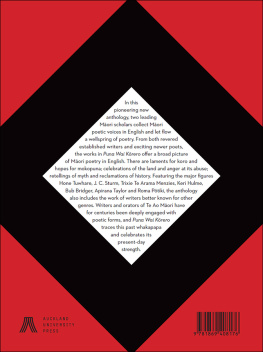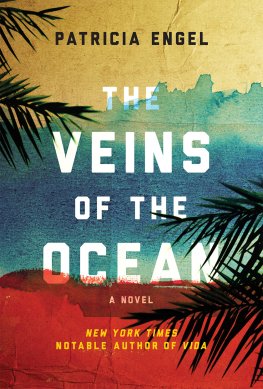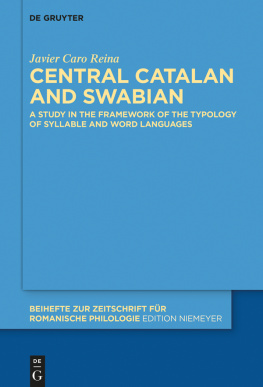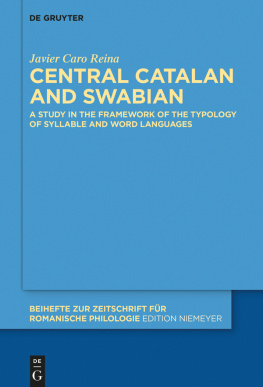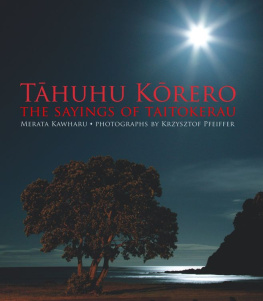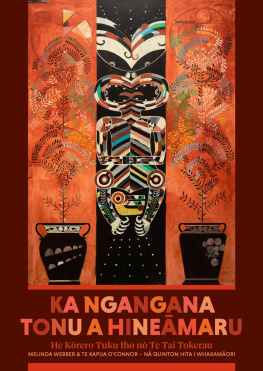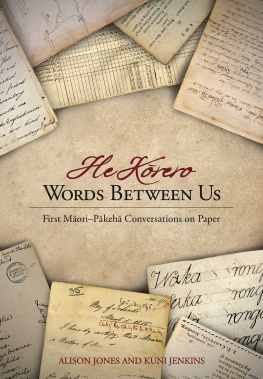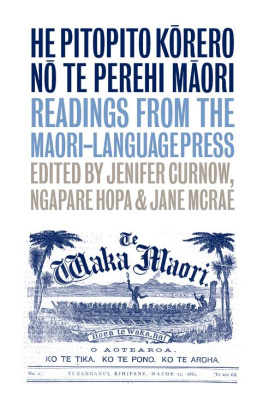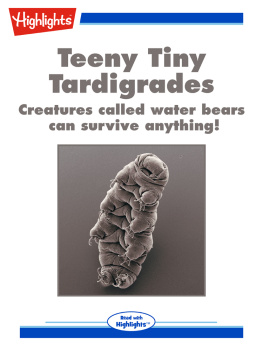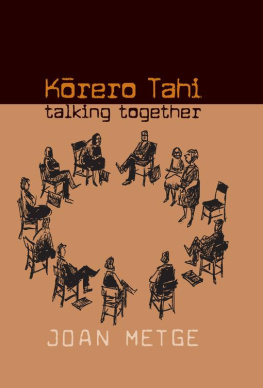Reina Whaitiri - Puna Wai Korero
Here you can read online Reina Whaitiri - Puna Wai Korero full text of the book (entire story) in english for free. Download pdf and epub, get meaning, cover and reviews about this ebook. year: 2014, publisher: Auckland University Press, genre: Art. Description of the work, (preface) as well as reviews are available. Best literature library LitArk.com created for fans of good reading and offers a wide selection of genres:
Romance novel
Science fiction
Adventure
Detective
Science
History
Home and family
Prose
Art
Politics
Computer
Non-fiction
Religion
Business
Children
Humor
Choose a favorite category and find really read worthwhile books. Enjoy immersion in the world of imagination, feel the emotions of the characters or learn something new for yourself, make an fascinating discovery.
- Book:Puna Wai Korero
- Author:
- Publisher:Auckland University Press
- Genre:
- Year:2014
- Rating:4 / 5
- Favourites:Add to favourites
- Your mark:
- 80
- 1
- 2
- 3
- 4
- 5
Puna Wai Korero: summary, description and annotation
We offer to read an annotation, description, summary or preface (depends on what the author of the book "Puna Wai Korero" wrote himself). If you haven't found the necessary information about the book — write in the comments, we will try to find it.
Puna Wai Korero — read online for free the complete book (whole text) full work
Below is the text of the book, divided by pages. System saving the place of the last page read, allows you to conveniently read the book "Puna Wai Korero" online for free, without having to search again every time where you left off. Put a bookmark, and you can go to the page where you finished reading at any time.
Font size:
Interval:
Bookmark:
This is the most important collection of Mori-language song poems ever published. Its four volumes were completed after his death by noted scholars, translators and linguists, including Pei Te Hurinui Jones, Tamati Muturangi Reedy and Hirini Moko Mead. Ngata continues to be a guiding light for Mori so we accordingly begin this anthology with his poem A scene from the past. For Mori, contact with Pkeh and their literary forms provided an exciting opportunity to express their experiences in new ways. The traditional forms of oral poetry remained such as waiata ringaringa, waiata tangi, waiata aroha, oriori, karakia, haka and whaikrero but writing words down in a new language and using different forms created new genres. Mori quickly and enthusiastically began experimenting with composing, writing and creating, and the work collected here in Puna Wai Krero is but a fraction of what has been produced over the years.
It soon became clear that there was a limit to what we could fit in this book, though we regret that we had to be so selective. Further anthologising of song lyrics, for example, and slam poetry will be needed to show the variety of work being produced and to research its whakapapa. Puna Wai Krero is a tribute to Hone Tuwhare, whom we acknowledge as Aotearoas poet laureate. He is certainly worthy of that title in the Mori world and he stands alongside those considered to be the best New Zealand poets. Since the early 1960s Tuwhares poetry has been enjoyed by generations of readers and his work has been translated into many languages. The numerous references to Tuwhare in this collection demonstrate the high regard in which he is held and, although he will be ever missed, his mana lives on in the large body of work he leaves.
His son Robert has generously given permission to publish the poems included here. We extend our thanks to him. Some of Hones poems selected for inclusion are the personal favourites of the editors, while others will be recognised as iconic representatives of his work. Ng mihi ki a koe, e Hone. Our matua Selwyn Murupaenga kindly allowed us to use the title Puna Wai Krero for this anthology. Murupaenga was a pioneer, one of the first Mori to be involved in radio, film-making and television in Aotearoa.
He produced a long-running (197196) weekly National Radio programme entitled Te Puna Wai Korero. The word puna refers to a wellspring, while wai means both water and memory. Krero refers to talk, stories, the mana kupu of a highly charged language as well as that in everyday use. The title of Hone Tuwhares 1993 collection, Deep River Talk, also expresses some of the essence of what Puna Wai Krero can mean. In most previous anthologies of New Zealand poetry, Mori poets, while there, have been given only cursory acknowledgement. One purpose of this anthology is to bring together the many Mori poets who have contributed to the literary landscape of Aotearoa in one anthology, with Mori editors the major criteria for inclusion in Puna Wai Krero was declaring tribal affilation/s.
The political and social commentaries in the poems present a unique perspective on Aotearoa and the wider world, from the early days of contact to the present. While poets such as Hone Tuwhare, Robert Sullivan, Rangi Faith and Arapera Blank are established poets, others have not yet had the recognition they deserve. With Puna Wai Krero we wanted to provide a space for as many poets as possible of Mori descent. The pioneering work of Witi Ihimaera, D. S. Long, Irihapeti Ramsden and Haare Williams set a benchmark with the publication of anthologies of Mori writing, Into the World of Light (1982) and the multi-volume Te Ao Mrama (199296).
These important anthologies introduced New Zealand to a broad but little-known and little-understood Mori world and gave voice to the many writers who would not have otherwise been heard. In the introduction to the first of these books the absence of Mori literary anthologies is noted, even though Mori writing is described as the pou tokomanawa of New Zealand literature. Writers such as Patricia Grace, Witi Ihimaera, Keri Hulme and J. C. Sturm are now well known for their fiction but Mori playwrights, lyricists and script writers still need to be anthologised. We would like to acknowledge the work of Huia Publishers, who have been publishing annual collections of short fiction by Mori writers.
They recently published Huia Histories of Mori: Ng Thuhu Krero (2012), a collection of essays by Mori scholars, edited by Danny Keenan. The Mori literary journal Ora Nui has published two issues since 2012, and other indigenous Pacific anthologies featuring Mori writers include Mana, and the award-winning Whetu Moana (2003) and Mauri Ola (2010) co-edited by Albert Wendt and the editors of this volume. For this anthology we have attempted to find as many poets with a Mori whakapapa as possible. There must certainly be poets we would have selected had we been aware of them. Some others we have not been able to contact for permission to use their work. In both cases we regret their absence.
While there is a wide range of voices and perspectives in the poetry, there are generally elements which are identifiable as Mori. Sometimes the Mori connection is obvious while at others it is more obscure, more subtle, or perhaps not there at all. There may be direct references to traditional songs in te reo or to well-known personalities, or allusions to other poems or poets. Many poets refer to Mori who have spent their lives promoting and supporting Mori rights and their respect is clearly expressed. The many references to local legends and incidents may not be recognised by all, but for those connected to them by tradition or through memory, there is great pleasure in the reading. Although the Glossary includes brief explanations of some historical events, comprehensive coverage is impossible here.
We hope that future students and scholars will find it a worthwhile and exciting research project to explore the many references to times, places, events, situations. In selecting poetry for the anthology we wanted to ask questions of the poets and their work. What identifies Mori poetry? or a Mori poet? What compels us to identify as Mori even though our links may be tenuous, or slight, or forgotten, even hidden? It may be painful to remember who we are or where we have come from, but frequently there is a sense of what it is to be proudly Mori. It is often the exploration of whakapapa which effects a connection. With aroha and manaakitanga, we support the work of writers who have asserted their Mori identity through their whakapapa. The poetry in Puna Wai Krero comes out of the countryside, from the towns and cities, and from many countries around the world.
The Mori diaspora is spread across the globe but wherever we find ourselves we continue to identify as Mori (mostly) and remain connected to Aotearoa after all, this is the one and only place on earth where we can claim a trangawaewae. The voices are many and diverse: confident, angry, passionate, respectful, proud, despairing and full of hope, expressing the full scope of what it is to be human, and especially, to be Mori. Much to our delight, artists not widely known for writing poetry offered us work: Witi Ihimaera, Paula Morris, Ngahuia Te Awekotuku, for example. Both Ihimaera and Te Awekotuku have previously been anthologised in poetry collections but it is a privilege to be allowed to include their work here. It is gratifying to have poetry written especially for
Font size:
Interval:
Bookmark:
Similar books «Puna Wai Korero»
Look at similar books to Puna Wai Korero. We have selected literature similar in name and meaning in the hope of providing readers with more options to find new, interesting, not yet read works.
Discussion, reviews of the book Puna Wai Korero and just readers' own opinions. Leave your comments, write what you think about the work, its meaning or the main characters. Specify what exactly you liked and what you didn't like, and why you think so.

